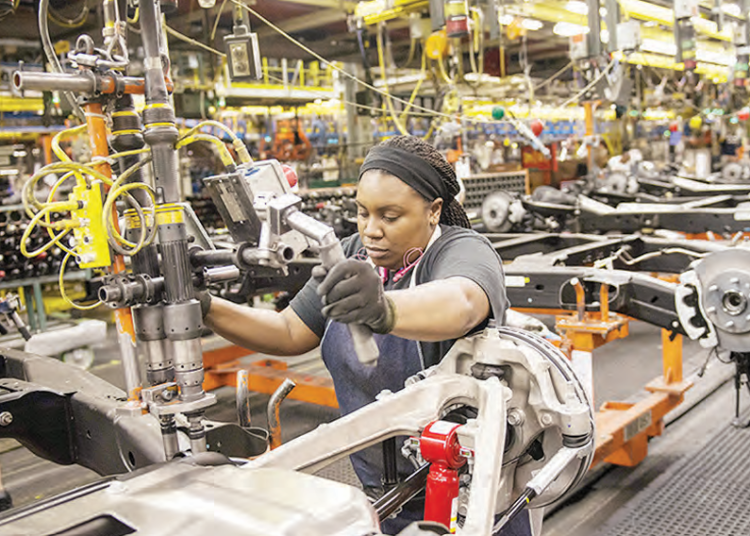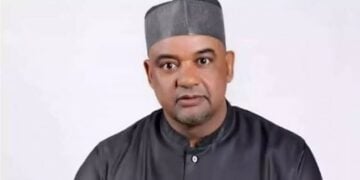Industrialists and Small and Medium Enterprises (SMEs) operators in Northern Nigeria have appealed to the federal and state governments to implement business-friendly policies and programmes to keep their organisations afloat and avert the closure of more firms in the incoming year.
They particularly asked the two tiers of government to address the lingering electricity crisis in the region, multiple taxes, decaying infrastructure and insecurity to reduce their cost of operations.
In separate interviews with LEADERSHIP Sunday, the industry stakeholders asked the states in the region to maximise the new Electricity Act, which unbundles the power sector and allows states to regulate the provision of electricity.
The law transferred regulatory authority for the power sector from the federal government to the states. This includes licensing, tariff regulation, consumer protection, among others.
Already, the National Electricity Regulatory Commission (NERC) has transferred regulatory authority to six states: Edo, Ekiti, Imo, Ondo, Oyo and Enugu.
Unfortunately, no state in the North falls into this category.
The industrialists believe that states in the North have the capacity and resources to use alternative sources of electricity to run industrial clusters and end the menace of frequent national grid collapse.
For 10 days in October and early November, the North East, North West and some parts of the North Central were thrown into total darkness due to bandits and terrorists’ attacks on electricity facilities.
The stakeholders asked the federal and state governments to faithfully implement their 2025 budgets to address the challenges faced by the power sector
The director-general of Kwara Chambers of Commerce, Mine and Industry (KWACCIMA), Barr. Sulyman Fagbemi, who called for the faithful implementation of the 2025 federal budget, said its provisions were good enough to improve the economic fortunes of Nigerians and aid industrial growth in the northern part of the country.
Fagbemi, a retired permanent secretary, told LEADERSHIP Sunday in Ilorin, Kwara State that, “The 2025 federal budget is reasonable. The management and faithful implementation are the areas of concern.”
He called for the improvement of electricity supply to reduce the cost of manufacturing in the northern states.
He also asked the government to prioritise investments in the education and health sectors in the northern states, noting that “health is wealth.”
Fagbemi equally called on the government to revive some of the moribund industries in the North to create more jobs for the youths, adding that the step would check youth unrest.
Fagbemi also harped on the need for the government to expedite action on the Ibadan-Kano railway.
“The railway from Ibadan to Kano can be done in phases. This will ease the movement of people and goods,” he said.
But in Zamfara State, some stakeholders have said that the 2025 federal budget lacks the structural reforms and fiscal discipline required to address Nigeria’s multifaceted economic challenges, which have adversely affected industries in the North.
They advised states in the region and the administration of President Bola Tinubu to prioritise the reduction of inefficiencies in public service, tackle contract inflation and focus on long-term fiscal sustainability rather than perpetuating unsustainable borrowing and recurrent spending patterns.
A former permanent secretary in the Federal Ministry of Works, Alhaji Abu Magaji, said a shift towards a more disciplined and growth-oriented fiscal policy is essential for the nation’s economic recovery, which will have positive multiplier effects on the North and business in the region.
He further charged the federal government to use its 2025 budget to address insecurity bedevilling the North West zone in particular, stressing that, “It is when you address insecurity that peace and stability needed for industrial operation would emerge.”
A Bauchi State-based expert, Baba Garba, urged the federal government to prioritise capital support for investment in the northern region through its 2025 budget to revive ailing industries and stimulate economic growth in the region.
Garba said the region’s potential as a hub for agriculture, textiles and solid minerals, if properly supported, could drive national economic diversification.
He said, “The northern part of the country has long been a bedrock of agricultural and industrial activity, but years of neglect and insecurity have crippled its economic prospects. The 2025 budget presents a unique opportunity to change that narrative.”
He called for targeted funding to rehabilitate infrastructure critical to industrial growth.
“Industrial hubs in cities such as Kano, Kaduna and Jos need urgent intervention to restore their productivity. The government should provide access to low-interest loans and grants for small and medium enterprises while partnering with the private sector to modernise production facilities,” he noted.
Garba also advocated for investments in roads, railways and energy projects to enhance connectivity and reduce operational costs for businesses in the region.
The expert further recommended the creation of a Northern Economic Revitalisation Fund to attract local and international investors.
“With the right policies and capital support, industries in the North can recover, providing millions of jobs and boosting national revenue. The federal government must act decisively by allocating substantial resources to unlock the region’s economic potential,” Garba said.
In Niger State, some SMEs operators appealed for a reduction in the cost of power, lamenting that they were paying huge energy bills to remain in business.
They also canvassed for a deliberate policy to leverage on agro-industrial potential of the North to diversify the national economy.
An industrialist, Yau Musa, said the high cost of providing power due to poor electricity supply would always put a burden on northern industrialists.
He said the only way to overcome the situation and make the North an agro industrial hub was to make power available and manage the proceeds from the removal of petroleum subsidy to diversify the economy.
He said, “For instance, where I used to have my factory at Gurara has been without electricity for over five years. The question is, why do we have to leave strategic industrial towns in the North without basic amenities? The president has not purposefully addressed that from what has come out so far from the budget.”
Another industrialist, Dauda Abdullahi, said “In those days, we used to buy large cotton from farmers around Kontagora, New Bussa, Magama and those axes but since there is no deliberate policy to encourage textile industry, we struggle to survive with medium scale ginnery.
“We expect that because the north is known for textiles, the president will make deliberate attempts to encourage cotton farmers and value chain initiatives from ginneries to the large textile factories.”
A renowned industrialist, rice miller and owner of the now moribund Alfijir Rice Mill, Sokoto, Alhaji Sani Maitalata, attributed the appalling state of the North and country’s economy to over dependence on oil and neglect of small-scale industries.
He bemoaned the gradual extinction of the once thriving small-scale industries across the country due to exorbitant high exchange rate of Naira.
“Nigeria’s yearly budget has always been on the increase but unfortunately, the country’s economy is nose-diving because our naira is always on a free-fall.
“I will not want to link the present circumstance to the withdrawal of fuel subsidy because the situation has always been the same, even when the subsidy was there.
“As an industrialist, I have not seen who the Nigerian budget has impacted on positively. If you say it is because of our capital base as small/medium scale entrepreneurs, are the big industries not folding up, too?
“What the government should do to remedy the bad situation is to stem the escalating exchange rate, reduce the cost of generating power and make it sufficient, where it is available,” he stated.
Similarly, some owners of small-scale businesses in Kaduna have asked the government to bring down inflation, the cost of fuel and adopt favourable economic policies that would boost production.
An emerging industrialist, Tony Eze, who produces sachet and bottled water in Kaduna, said the cost of production was getting out of hand and asked the government to address it in the new year ahead.
He said, “Some of us who are into production know what we have faced in the last two years. You can buy production materials today and tomorrow the price would be higher and this is affecting our production. We are finding it difficult to operate as many of us have even reduced our workforce drastically to save cost. Government must address these economic challenges in 2025.”
The organising secretary of the Coalition of Unpaid Workers of Closed Textiles in Kaduna, Comrade Godwin Ishatah, said for the economy of the North and the country to bounce back, the government must revive the moribund textile industries for mass production and employment generation.
In Kebbi State, the chairman of the Kebbi Chamber of Commerce, Mines and Industries, Alhaji Babangida Maiahu, advised the government to prioritise the Ministry of Industry in its yearly budget for Nigeria to develop.











